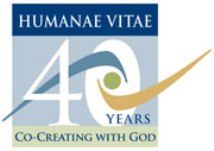
The Orthodox Way is one of the most referenced books in Orthodox Christianity. Despite Bishop Kallistos Ware's best case, I remain strongly Roman Catholic. In the book, Ware describes the theological doctrines, worship, and life of Orthodox Christians. In the Introduction, Ware emphatically states that Christianity is more than a theory explaining the mystery of the universe, but recalling an ancient name for Christianity, he labels it as "the way" to Truth. On that issue, I don't disagree with him. But, I do think a close examination of his argument shows that though he is a renowned scholar, he fails to make a case for The Orthodox Church and its doctrines. In comparison to figures such as St. Thomas Aquinas, known infamously for taking on counter-arguments head on, Ware lacks such boldness. He quotes—to an inordinate degree—the Greek Fathers of the Church and theologians of the Orthodox tradition. Rarely is there any mention of early Christians devoted to the traditions and theology of Western Christianity. I think the fact that he doesn't, at first glance, isn't surprising at all. Supposedly, the West is in heresy. But then again, the fact that he doesn't, is very surprising.
Ware cites from seventy-five sources that he refers to as “Orthodox.” Of the group, only three sources—St. Augustine, St. Anthony of Egypt, and St. Leo the Great—are of the Western Christian tradition. He also cites from thirteen additional sources that he refers to as “Non-Orthodox,” implying that the writers are not Orthodox Christians or any of the early Church Fathers. The typical use of sources of this sort is to validate his own convictions or to condemn a specific view, e.g. Augustine’s view of the fall of man.
In the pages devoted to the Latin doctrine of the Filioque, or “and the Son,” which has found its place in the Western version of the Nicene Creed, Ware asserts that this “unauthorized addition” committed without the consent of the Christian East is not only theologically unsound, but it is “spiritually harmful.” He notes that the Orthodox Church following the Greek Fathers of the fourth century—presumably the Cappadocians—affirm that the Father is the sole source of the Trinity. Ware misinterprets the Trinitarian theology of the West. St. Augustine in fact argued that God the Father was the source of the Trinity using the analogy of love. If God is love, then the Father is the lover and the object of his love is the Son, the beloved. The Son returns the love of the Father and the love existing between them is the Spirit.
Ware reflecting over an Orthodox hymn for the Feast of Pentecost states that one of the “chief reasons” that the Orthodox reject the filioque is that it “might lead men to depersonalize and subordinate the Holy Spirit.” The same is true of not having the filoque in the West when men were inclined to “depersonalize” and “subordinate” the Son. In response to the pressing question then about the interrelationship of the Son and Spirit to the Father, that is, what is the difference between “generation” and “procession,” Ware cites St. John of Damascus who claimed, “…we do not understand at all.” He supports this with St. Basil the Great who remarked, “it is easier to measure the entire sea…than to grasp God’s ineffable greatness with the human mind.” Ware, then, turns to St. Irenaeus who speaks of the “two hands” of God, in which we see manifested in the work of God itself, e.g. creation, the Incarnation, the Transfiguration, etc. This very theological mystery is discussed by St. Augustine, a Church Father that Ware does not turn to once except to speak ill of some idea that he posited. Augustine did concede that human language could not properly describe the Divine Reality, but since it is the only tool we have in discussing God, it is necessary that man try the best he can, understanding the improper proportions of analogies to God.
St. Augustine effectively employed human psychology and the idea of love, to illuminate the persons of the Son and the Spirit and paint a clearer distinction between the two, e.g. the Son as the beloved of the Father and the Spirit as the "act of love" pouring back and forth between the Father and Son, hence, the “double procession.” Ware does not choose to explore this idea in the context of the Western Christian tradition, which he seems—from cover to cover—not to care for at all. Perhaps this is due to the West’s philosophic nature in contrast to the East and its attentiveness toward spirituality and mysticism; hence, Ware willingness to refer to the idea of God as both Father and “Mother” put forward by the Blessed Julian of Norwich, a Roman Catholic mystic who’s notion supports Aphrahat, an early Syriac Father who speaks of the believer’s love for “God his Father and the Holy Spirit his Mother.”
In his discussion of the Blessed Virgin Mary, often referred to in Orthodoxy as the Theotokos—the God-bearer or Mother of God—he spells out the Orthodox position on the Catholic dogma of the Immaculate Conception: "Although not accepting the Latin doctrine of the Immaculate Conception, Orthodoxy in its liturgical worship addresses the Mother of God as a spotless” (achrantos), “all-holy” (panagia), “altogether without stain” ( panamomos)…She is for us “the joy of all creation” (The Liturgy of St. Basil), “flower of the human race and gate of heaven” (Dogmatikon in Tone One)… "
Ware then quotes St. Ephrem the Syrian, also of the Eastern Christian tradition, “Thou alone, O Jesus, with thy Mother art beautiful in every way: For there is no blemish in thee, my Lord, and no stain in thy Mother.” Ware, quoting heavily from Eastern Christian sources, comes to a consensus with the Latin dogma of the Immaculate Conception, though he denies it. Nothing that he states goes against it nor makes it theologically inept. The idea that the Immaculate Conception as simply “superfluous” as Ware puts it comes from a difference in opinion between the East and the West on the fall of man.
The Latin West holds a very Augustinian view of the Fall, where there is an inheritance of Original Sin, in such a way that there is an innate disordered tendency toward self in reflection of the pride of Adam and Eve. The Orthodox according to Ware hold a radically different view that doesn’t explain original sin in “quasi-biological” terms. Ware describes the Orthodox view of original sin this way: "The doctrine of original sin means rather that we are born into an environment where it is easy to do evil and hard to do good; easy to hurt others and hard to heal their wounds…and to this accumulation of wrong we have ourselves added by our own deliberate acts of sin."
This idea, however, doesn’t necessarily disagree with the view held by Latin Christianity. The West certainly would say more about the nature of sin itself—that it is not just an external reality, but an internal one where humans struggle with a sort of moral paralysis. In effect, humans are wounded creatures that need God’s grace; often enough, the intention to do good is sometimes disordered in our pursuit to protect and gratify ourselves rather than do what is holy. However, the West would agree that this internal struggle that we all face does create an environment where it is “easy to do evil and hard to good.” The two ideas of Original Sin are not in opposition to one another, though Ware holds that position and it might seem so at first glance.
Kallistos Ware undoubtedly gives an impressive, synoptic vision of Orthodox Christian theology and spirituality. In the Introduction, Ware proclaims the Orthodox Church’s message to the West: “We are your past.” In spelling out the details of Orthodox theology, Ware does not give credit to or any recognition to Western Christianity; though, the Orthodox Church considers the West to be heresy, none of the Church Fathers or traditions of the West prior to the “heretical” turn of the West are praised and seen as what the West should return to. Ware’s bias is apparently evid€ent—particularly in his excessive citing of Eastern Orthodox sources—and shows that he does not fully expound on why the Orthodox view is necessarily correct. Certainly, Ware could have made a profoundly critical argument had he used early Church Fathers and saints of Western Christian tradition to demonstrate how Roman Catholicism has deviated from its past. Rather, he quotes faithfully from Greek Fathers and Orthodox Christians who already affirmed a view he is committed to. The fact that he went about it this way and not the other may reveal a much greater reality—perhaps there is no valid argument of heresy against Western Christianity.
Sunday, May 4, 2008
Can Eastern Orthodoxy Really Make A Case?
Labels: Catholicism, Eastern Orthodoxy
Subscribe to:
Post Comments (Atom)
This Catholic Loves Benedict XVI

Knights of Columbus: Champions for the Family

The Pro-Life Movement in the Democratic Party



































0 Comments:
Post a Comment